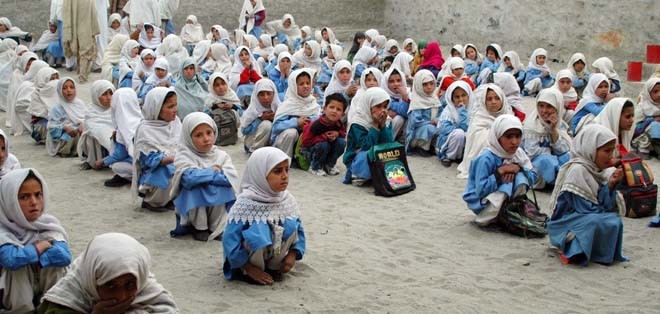
It is important for the stakeholders in education to recognise that more and urgently important aspects of education are escaping our attention

Speaking about the nature of discourse on the social media in the wake of sharply polarised political scene in the country, a friend had this to say, "We are an intolerant people, all of us, even the highly educated." "Why do you think this is the case?"I asked. "We were naturally intolerant as a people," was the reply.
Nothing can be further from the fact since we have so much evidence about the civilising as well as destructive potential of education. We have already seen the power of its militarising and destructive potential in the 1980s through a curriculum aimed at the production of mujahedeen as fuel in the Cold War. What we have not witnessed in Pakistan so far is education’s civilising potential.
Unfortunately, civic or citizenship education is not on the agenda in educational debates about quality of education in Pakistan. Far from it, we have become obsessed with the test scores in selected subject areas as measures of educational quality. Accordingly, the current public debates about educational quality in Pakistan are saturated with concerns about student test scores.
State of education is being judged mainly, if not exclusively, in terms of average student scores in mathematics, science, and language. The policy research initiatives are also largely concerned with effects of particular policy initiatives on student test scores. This one-dimensional focus on test scores has some unfortunate implications inasmuch as it has blinded us to some central concerns about education such as what does it mean to be educated?
What would we like educated individuals to possess in terms of knowledge, skills, and values? We would like them to be literate and numerate, but not just that. We would also like them to learn to live in a society that cannot help but be diverse. They should learn to uphold such values as tolerance, civility, care, and respect for the rights of those who are different from them. They should also learn to take informed positions on issues of importance to them. They should also be able to argue with each other with civility. They should also learn to examine the arguments of others critically.
Constitution has been in the headlines recently in the midst of the current political turmoil with all sides claiming to defend it. Yet, try asking anyone a question about the preamble of the constitution, and the rights of citizens enshrined therein and you are unlikely to get a satisfactory response. The Pakistan studies syllabus typically covers topic in history, geography, economy, and national identity etc. Constitutional literacy, however, is conspicuous by its absence. One of the objectives of secondary school Pakistan studies curriculum states: "acquaint the students with various phases of Pakistan’s historical, political and constitutional developments." But there are no SLOs regarding the contents of 1973 constitution and its provisions for citizens of Pakistan.
Is there any good reason that our secondary school children are not learning about the constitution of their own country? None whatsoever! What would be a better textbook on rights and responsibilities of the Pakistani citizens than the constitution itself? All matriculating children should be fully aware of their constitutional rights and obligations. A quality education must include constitutional literacy. Yet, this issue almost never surfaces in debates on education reform.
The problem of introducing civic values or constitutional literacy in the school syllabi lies in the domain of curriculum. The last time we took curriculum seriously in Pakistan was in 2006 when the then federal ministry of education developed the curriculum frameworks. This is 2014 and we are still struggling to align the textbooks with a curriculum framework prepared eight years ago.
Curriculum frameworks must not be treated as dead documents and must be subject to debates and periodic revisions. Since the curriculum has now become a provincial subject, it is high time to regenerate debate and emphasise the development of civic values and constitutional literacy as part of curriculum frameworks.
Curriculum debates are just as, even more, important as our current gaze on the trajectory of average test scores. I am not arguing against gauging the state of education through tests. But it is important for the stakeholders in education to recognise that more and urgently important aspects of education are escaping our attention due to an exclusive focus on average test scores in a few selective subject domains.